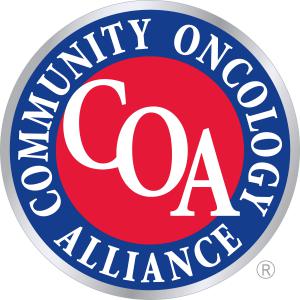
[ad_1]
Health Equity Committee Will Lead COA’s Efforts to Address Cancer and Other Health Disparities Through Research and Projects
WASHINGTON, D.C., UNITED STATES, May 4, 2022 /EINPresswire.com/ — As part of its commitment to addressing ongoing health disparities and increasing access to cancer care, the Community Oncology Alliance (COA) Board of Directors announced today the creation of a standing Health Equity Committee. This committee is the latest in a line of actions taken by COA to highlight and address cancer health disparities through research and action. The COA Health Equity Committee is comprised of members from around the country to include diverse perspectives and was created with an interdisciplinary focus in mind, ensuring that changes are thorough and not siloed to one aspect of practices or the overall health care system.
It is well understood that race, ethnicity, education, income, and other factors have a tremendous influence on patient interactions with the health care system and outcomes. Health disparities are particularly shocking in cancer care where, despite significant efforts to address the issue, certain groups continue to be at an increased risk of developing or dying from cancer.
COA has worked to understand and alleviate cancer health disparities for several years. A recent study conducted for COA by Avalere Health found that the COVID-19 pandemic exacerbated existing cancer screening rates among minority populations. COA members are currently piloting programs to identify and address social, environmental, and economic disparities in their clinics, and COA’s own Time to Screen public awareness campaign has rolled out campaign materials in five languages to help reach non-English speaking populations about the importance of cancer screenings.
“A patient’s journey should be one of hope. To make that a reality, we must support and care for the whole patient,” said Alti Rahman, MHA, MBA, CSSBB, chair of the COA Health Equity Committee. “I am excited to bring the lessons from my practice to this initiative and to work with other COA members to make community oncology an even more meaningful care setting for vulnerable patients.”
“Many efforts to make health care more equitable are well-intentioned but lack the resources or scope to create lasting change. Because the COA Health Equity Committee will seek to address all areas of community oncology, from research to treatment to administration, and because the members of the task force come from all disciplines of community oncology, we have a chance to make our corner of the health care system better than it already is,” said Kashyap Patel, MD, president of COA and a member of the COA Health Equity Committee.
The COA Health Equity Committee is currently made up of 15 COA members and staff members. They are:
– Miriam Atkins, MD, FACP, Augusta Oncology
– Mike Diaz, MD, Florida Cancer Specialists & Research Institute
– Nicolas Ferreyros, Community Oncology Alliance
– Bo Gamble, Community Oncology Alliance
– Rose Gerber, MS, Community Oncology Alliance
– Barbara McAneny, MD, FASCO, MACP, New Mexico Oncology Hematology Consultants
– Marina Messinger, MD, Northwest Oncology & Hematology
– Kathy Oubre, MS, Pontchartrain Cancer Center
– Kashyap Patel, MD, Carolina Blood & Cancer Care Associates
– Debra Patt, MD, PhD, MBA, Texas Oncology & US Oncology
– Jennifer Pichoske, MS, Hematology-Oncology Associates of Central New York
– Alti Rahman, MHA, MBA, CSSBB, Oncology Consultants
– Steven Schleicher, MD, MBA, Tennessee Oncology
– Mark Thompson, MD, Community Oncology Alliance
– Emily Touloukian, DO, Coastal Cancer Center
– Susan Sabo-Wagner, RN, BSN, OCN, Oncology Consultants
The COA Health Equity Committee builds on the work of members with the understanding that addressing structural problems is akin to boiling the ocean; the problem is vast and complex, so the most effective strategy to create change is focusing on one area of expertise: community oncology. The Committee has identified seven areas where it can achieve the best results: Clinical Trial Design, Community Resources, Patient Education, Technology Integration, Practice Culture, Payor Health Benefit Design, and Research in Health Disparities. These areas are comprehensive and overlapping, ensuring that all parts of community oncology will work together to create a better care system.
###
About the Community Oncology Alliance: COA is a non-profit organization dedicated to advocating for community oncology practices and, most importantly, the patients they serve. COA is the only organization dedicated solely to community oncology where the majority of Americans with cancer are treated. The mission of COA is to ensure that patients with cancer receive quality, affordable, and accessible cancer care in their own communities. More than 5,000 people in the United States are diagnosed with cancer every day and deaths from the disease have been steadily declining due to earlier detection, diagnosis, and treatment. Learn more at www.CommunityOncology.org. Follow COA on Twitter at www.twitter.com/oncologyCOA or on Facebook at www.facebook.com/CommunityOncologyAlliance.
Nicolas Ferreyros
Community Oncology Alliance (COA)
info@coacancer.org
Visit us on social media:
Facebook
Twitter
LinkedIn
[ad_2]
Source link

